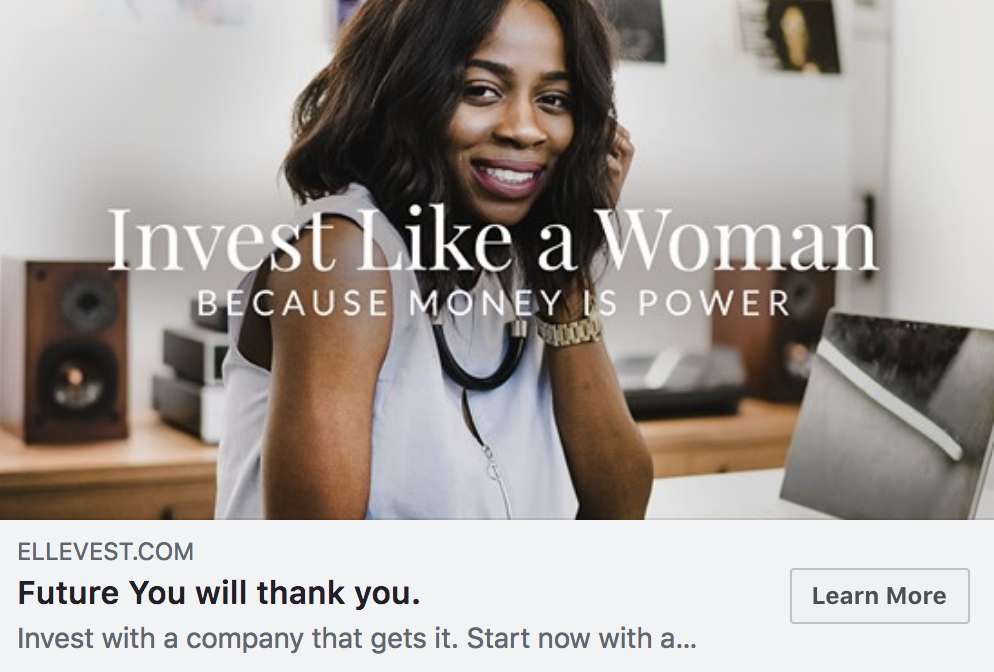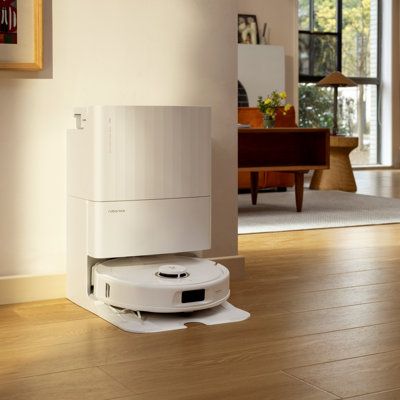When you hear the words “successful women,” who comes to mind? Women in power suits walking down 5th avenue? Ruth Bader Ginsburg unifying a room of politicians? Beyoncé?
Today, there is no shortage of trailblazing, badass women to look up too. . . While women like RBG, Sandberg, and Beyoncé have been able to reach a point of success in different ways, there is one thing all successful woman have in common, and that is that they make their money work for them. In other words, they work smarter, not harder.
Interestingly, a recent report of the Ellevest 2018 money census revealed that the #1 thing that makes women feel in charge of their futures is “putting away money for financial goals,” followed by how much we save (#2) and how much we invest (#3). In fact, getting involved with our finances had a bigger positive impact on how in charge women feel than our educations (#8) and the support we get from our families (spouse/partner, family/parents and even being a mother or a father) (#6, #9, #10).
But, if that feels crazy or incorrect, it should, because according to a recent Fidelity report, while 92% of women want to learn more about financial planning, 80% aren’t talking about money with anyone; and only 47% feel comfortable discussing money with a professional. As a result, we lag behind men in how much we’re investing and, in the long run, how much money we’re making.
We’ve been told there’s financial stuff we should take care of when we are adults — like setting up a 401(k) or investing in an IRA or saving for a down payment for a home — but until now, many of have been happy just to do the basics and saving, and it’s hard to think about how to take our money further.
But, the truth is that while saving is great when you leave your savings in cash, it’s possible you are missing opportunities because you’re singularly focused on saving your dollars and not allowing the money to work harder for you. “This is the precursor to the gender investing gap, and it’s not our fault. Honestly, it’s not,” says Wall Street veteran Sallie Krawcheck who’s making closing the investment gap her mission with digital investment startup Ellevest.
The financial services industry is filled with jargon and complexity. . . when, in fact, investing doesn’t have to be that complicated.
Personally, I have also always felt like I don’t have enough financial knowledge to get started investing, and I don’t have the time to learn. But not taking care of your finances is like not taking care of your physical or mental health. Something I’ve learned from the team at Ellevest is the stuff I previously found super complicated isn’t actually that confusing. And, yeah, it takes a little time to get started. But we’re talking your money here. You need it.
So how much could you really be making if you started investing this week? I asked Krawheck to crunch some numbers, and here’s one example:
If you’re making $85,000 a year and putting 20% of your income in the bank, you’re losing out on $1.1 million or more, over the next 40 years*. Want to know what the short term of that looks like? If you’re making $85,000 a year and putting 20% in the bank, and wait 10 years to invest, you could be losing about $100 every day. For 10 years.* That’s right.
Not investing because you want certainty? If you save 10% of your income for retirement annually and put it in the bank, your chances of retiring well (ie, 90% of your pre-retirement income) for a woman’s expected lifespan is 0%. Scary? It should be.
So what’s a wanna-be-debt-free woman to do? Keep reading.
Start Where You Are
The long and short of it is that the best thing you can do to ensure your future is safe is to plan financially, have more money, and know where and how to invest it.
- The very first thing you must do before invest is to pay down your credit card debt. Even better, pay it off entirely.
- Pay down or refinance any other debt with an interest rate in the double digits.
- Set up an emergency fund. This can be in your checking account, or better yet, in a separate savings account. (I don’t know about you, but the balance in my checking account tends to go down as fast as it goes up.) Three to six months of your take-home pay is a good guideline here. Why is this so high on the priority list? Because s*** happens. Because roofs cave in, because people get fired, because you might need to get a new car. Make sense?
- Once you’ve gotten rid of your high-interest debt — Congrats! The rule from here on out is pay yourself first. Put away a percentage of your after-tax salary every month. . . The breakdown should look something like this: 50% for needs/30% for wants/ 20% for investing (more on the breakdown here).
- Get that 401(k) match (if your company has one) by investing part of each paycheck. A match is free money; don’t leave it on the table.
- Make your money make money: Once you’ve contributed enough to get your match, invest in an IRA. Not sure which type of IRA is for you? You can read more about how Ellevest retirement accounts here.
When Women Have Power
Women need to have the same financial security that men do, not just for themselves, but for their families. With more and more women being the primary or larger breadwinner in the family, the money they make, save, and invest represents the future for their entire families, just as it always has for men.
With more stay-at-home dads than ever before, women represent a larger part of the workforce than ever before in recorded history, which means they need that larger slice of the pie to save and to create more wealth from through investing intelligently, Ellevest helps women do this through listening to women to understand their needs, and by offering them 401(k)s, IRAs, and other saving and investing tools that are tailored to their unique needs.
Money Makes Women Feel In Control
It’s not just a matter of saving and waiting for tomorrow — Ellevest knows that a lot of how we feel about today and our overall lot in life has to do with how we feel, whether or not we feel safe, and whether we feel like we could weather a tough storm if we didn’t have work to count on for several months. The truth is, most of today’s women and the families that depend on their income will not be financially secure if that woman loses her job and cannot find work again right away. Money makes the world go round, but it also makes us feel safer, better, healthier, happier, and like we can face an uncertain future ahead.
And, that’s exactly why 63 percent of women surveyed by Ellevest said that money made them feel in charge of their lives.
Want to own your own home? Start your own business? Make that big splurge that you daydream about? What are the chances of achieving them if you’re just dreaming about them? Pretty low. Research indicates that your chances increase if you just write
your goals down. Then you can plan for and invest in them.
At Ellevest, they build each personalized investment portfolio with a target of getting you to your goal, or better, in the significant majority of markets. That’s a lot better than dreaming.









